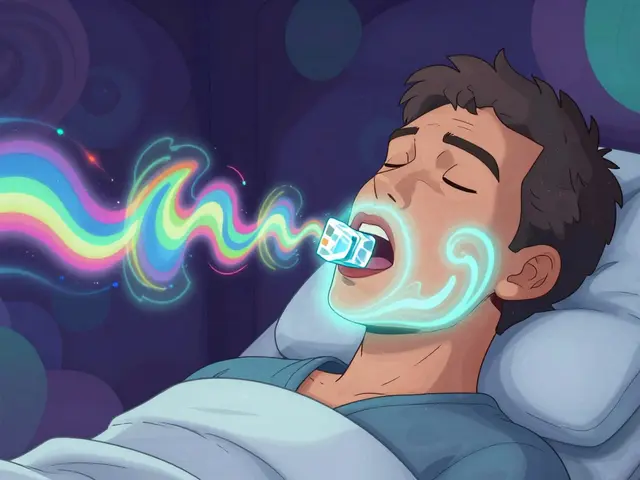
Sleep Deprivation – What It Is and Why It Matters
Ever felt foggy after a night of tossing and turning? That’s sleep deprivation, and it can sneak up on anyone. Missing just a few hours of shut‑eye each night adds up, messing with your mood, focus, and even your heart. The good news? Small changes can turn a sleepless mess into a solid night of rest.
Why Sleep Deprivation Happens
Most people blame the work grind, but the real culprits are a mix of habits and environment. Late‑night screens flood your brain with blue light, telling it to stay awake. Caffeine after lunch can keep you wired when you need to wind down. Stress, anxiety, and a bedroom that’s too bright or noisy also play a big part.
Age matters too. Teens need about nine hours, while adults usually feel good after seven to eight. When you consistently fall short, your body builds up a sleep debt that’s hard to repay. That debt shows up as slower reaction times, cravings for sugary foods, and a weakened immune system.
Quick Fixes to Beat Sleep Deprivation
Start with a bedtime routine you actually enjoy. Something as simple as reading a paperback or listening to calm music signals to your brain that it’s time to relax. Aim to go to bed and wake up at the same time every day, even on weekends – consistency is key.
Turn off screens at least an hour before lights out. If you can’t avoid them, use a blue‑light filter or night‑mode setting. Keep your bedroom cool, dark, and quiet. A room temperature around 65°F (18°C) works for most people. Blackout curtains or a sleep mask block out unwanted light, and earplugs mute disruptive sounds.
Watch what you drink and eat after 3 p.m. Cut back on coffee, energy drinks, and sugary snacks that can keep you wired. Instead, try a warm herbal tea like chamomile or a small banana, which contains magnesium that helps muscles relax.
Exercise helps, but timing matters. A brisk walk or short workout in the morning or early afternoon boosts sleep pressure, making you feel tired at night. Intense exercise right before bed can have the opposite effect.
If worries keep you up, jot them down in a notebook. Getting thoughts on paper clears your mind and makes it easier to let go. Breathing exercises, such as the 4‑7‑8 technique (inhale 4 seconds, hold 7, exhale 8), also calm the nervous system.
When you finally drift off, aim for seven to nine hours of uninterrupted sleep. If you still wake up feeling groggy, consider a short nap (20‑30 minutes) early in the day, but avoid long naps that can throw off your nighttime rhythm.
Remember, fixing sleep deprivation isn’t about a single miracle solution. It’s a series of tiny habits that add up. Start with one change, track how you feel, and build from there. Soon you’ll notice sharper focus, better mood, and a healthier body – all thanks to proper rest.
-
12 Sep






